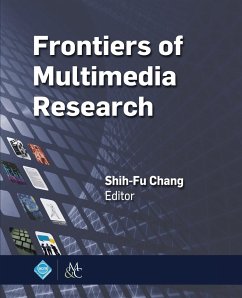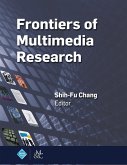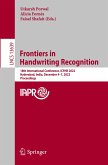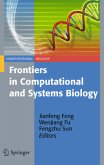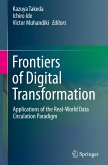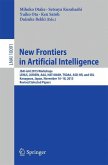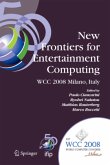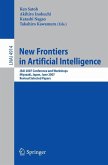The field of multimedia is unique in offering a rich and dynamic forum for researchers from "traditional" fields to collaborate and develop new solutions and knowledge that transcend the boundaries of individual disciplines. Despite the prolific research activities and outcomes, however, few efforts have been made to develop books that serve as an introduction to the rich spectrum of topics covered by this broad field. A few books are available that either focus on specific subfields or basic background in multimedia. Tutorial-style materials covering the active topics being pursued by the leading researchers at frontiers of the field are currently lacking. In 2015, ACM SIGMM, the special interest group on multimedia, launched a new initiative to address this void by selecting and inviting 12 rising-star speakers from different subfields of multimedia research to deliver plenary tutorial-style talks at the ACM Multimedia conference for 2015. Each speaker discussed the challenges and state-of-the-art developments of their prospective research areas in a general manner to the broad community. The covered topics were comprehensive, including multimedia content understanding, multimodal human-human and human-computer interaction, multimedia social media, and multimedia system architecture and deployment. Following the very positive responses to these talks, the speakers were invited to expand the content covered in their talks into chapters that can be used as reference material for researchers, students, and practitioners. Each chapter discusses the problems, technical challenges, state-of-the-art approaches and performances, open issues, and promising direction for future work. Collectively, the chapters provide an excellent sampling of major topics addressed by the community as a whole. This book, capturing some of the outcomes of such efforts, is well positioned to fill the aforementioned needs in providing tutorial-style reference materials for frontier topics in multimedia. At the same time, the speed and sophistication required of data processing have grown. In addition to simple queries, complex algorithms like machine learning and graph analysis are becoming common. And in addition to batch processing, streaming analysis of real-time data is required to let organizations take timely action. Future computing platforms will need to not only scale out traditional workloads, but support these new applications too. This book, a revised version of the 2014 ACM Dissertation Award winning dissertation, proposes an architecture for cluster computing systems that can tackle emerging data processing workloads at scale. Whereas early cluster computing systems, like MapReduce, handled batch processing, our architecture also enables streaming and interactive queries, while keeping MapReduce's scalability and fault tolerance. And whereas most deployed systems only support simple one-pass computations (e.g., SQL queries), ours also extends to the multi-pass algorithms required for complex analytics like machine learning. Finally, unlike the specialized systems proposed for some of these workloads, our architecture allows these computations to be combined, enabling rich new applications that intermix, for example, streaming and batch processing. We achieve these results through a simple extension to MapReduce that adds primitives for data sharing, called Resilient Distributed Datasets (RDDs). We show that this is enough to capture a wide range of workloads. We implement RDDs in the open source Spark system, which we evaluate using synthetic and real workloads. Spark matches or exceeds the performance of specialized systems in many domains, while offering stronger fault tolerance properties and allowing these workloads to be combined. Finally, we examine the generality of RDDs from both a theoretical modeling perspective and a systems perspective. This version of the dissertation makes
Hinweis: Dieser Artikel kann nur an eine deutsche Lieferadresse ausgeliefert werden.
Hinweis: Dieser Artikel kann nur an eine deutsche Lieferadresse ausgeliefert werden.

